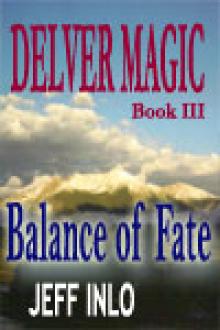Eco: Foucalt's Pendulum by eco foucault (important books to read .txt) 📗

- Author: eco foucault
Book online «Eco: Foucalt's Pendulum by eco foucault (important books to read .txt) 📗». Author eco foucault
The Baconians hadinvented Masonry to be like Rick's in Casablanca, JesuitNeo-Templarism had parried that move, and now Luchet was hired tobump off all the groups that weren't Baconian.
At this point, however,we were confronted with another problem, which was too much forpoor Aglie to handle. Why had de Maistre, who was the Jesuits' man,gone to Wilhelmsbad to sow dissension among the neo-Templars a goodseven years before the Marquis de Luchet appeared on thescene?
"Neo-Templarism was allright in the first half of the eighteenth century," Belbo said,"and it was all wrong at the end of the century; first because ithad been taken over by revolutionaries, for whom anything served,the Goddess Reason, the Supreme Being, even Cagliostro, providedthey could cut off the king's head, and second because the Germanprinces were now putting their thumbs in the pie, especiallyFrederick of Prussia, and his aims surely didn't correspond tothose of the Jesuits. When mystical neo-Templarism, whoeverinvented it, began producing things like The Magic Flute, Loyola'smen naturally decided to wipe it out. It's like high finance: youbuy a company, you sell off its assets, you declare bankruptcy, youclose it down, and you reinvest its capital. The important thing isthe overall strategy, not what happens to the janitor. Or it's likea used car: when it stops running, you send it to thejunkyard."
90
In the true Masonic codeno other god will be found save Mani. He is the god of the cabalistMasons, of the ancient Rosicrucians, of the Martinis! Masons...Allthe outrages attributed to the Templars are precisely thoseattributed, before them, to the Manicheans.
¡XAbbe" Barruel,M&moires pour servir A I'histoire du jacobinisme, Hamburg,1798, 2, xiii
The Jesuits' strategybecame clear to us when we discovered Barruel. Between 1797 and1798, in response to the French Revolution, he writes his Memoirespour servir d I'histoire du ja-cobinisme, a real dime novel thatbegins, surprise surprise, with the Templars. After the burning ofMolay, they transform themselves into a secret society to destroymonarchy and papacy and to create a world republic. In theeighteenth century they take over Freemasonry and make it theirinstrument. In 1763 they create a literary academy consisting ofVoltaire, Turgot, Con-dorcet, Diderot, and d'Alembert, which meetsin the house of Baron d'Holbach and in 1776, plot after plot, theybring about the birth of the Jacobins. But they are meremarionettes, their strings pulled by the real bosses, theIlluminati of Bavaria¡X regicides by vocation.
Junkyard? After havingsplit Masonry in two with the help of Ramsay, the Jesuits wereputting it together again in order to fight it head-on.
Barruel's book had someinfluence^ in fact, in the French National Archives there were atleast two reports ordered by Napoleon on the clandestine sects.These reports were drawn up by a certain Charles de Berkheim,who¡Xin the best tradition of secret police¡Xobtained hisinformation from sources already published; he copied freely, firstfrom the book by the Marquis de Luchet and then fromBarruel's.
Reading these horrifyingdescriptions of the Illuminati as well as the denunciation of adirectorate of Unknown Superiors capable of ruling the world,Napoleon did not hesitate: he decided to join them. He had hisbrother Joseph named grand master of the Great Orient, and hehimself, according to many sources, made contact with the Masonsand became a very high official in their ranks. It is not known,however, in which rite. Perhaps, prudently, in all ofthem.
We had no idea whatNapoleon knew, but we weren't forgetting that he had spent time inEgypt, and God knows what sages he conversed with in the shadow ofthe pyramids (even a child could see that the famous fortycenturies (here looking down on him were a clear reference to theHermetic Tradition).
Napoleon must have knownsomething, because in 1806 he convoked an assembly of French Jews.The official reasons were banal: an attempt to reduce usury, toassure himself of the loyalty of the Jewish population, to find newfinancing...None of which explains why he called that assembly theGrand San-hedrin, a name suggesting a directorate of superiors moreor less unknown. The truth is that the shrewd Corsican hadidentified the representatives of the Jerusalemite branch, and wastrying to unite the various scattered Templar groups.
"It's no accident thatin 1808 Marechal Ney's troops are at Tomar. You see theconnection?"
"We're here to seeconnections."
"Now Napoleon, about todefeat England, has almost all the European centers in his hand,and through the French Jews he has the Jerusalemites as well. Whatdoes he still lack?"
"ThePaulicians."
"Exactly. And we haven'tyet decided where they end up. But Napoleon provides us with aclue: he goes to look for them in Russia."
Living for centuries inSlavic regions, the Paulicians naturally reorganize under thelabels of various Russian mystic groups. One of the mostinfluential advisers of Alexander I is Prince Galitzin, connectedwith sects of Martinist inspiration. And who do we find in Russia,a good ten years before Napoleon, as plenipotentiary of the Houseof Savoy, tying bonds with the mystic cenacles of St. Petersburg?De Maistre.
At this point de Maistredistrusts any organization of Illuminati; for him, they are nodifferent from the men of the Enlightenment responsible for thebloodbath of the Revolution. During this period, in fact, repeatingBarruel almost word for word, he talks of a satanic sect that wantsto conquer the world, and probably he has Napoleon in mind. If ourgreat reactionary is aiming, then, to seduce the Martinist groups,it is because he suspects that they, though drawing theirinspiration from the same sources as French and Germanneo-Templarism, are the heirs of the one group not yet corrupted byWestern thought: the Paulicians.
But apparently deMaistre's plan does not succeed. In 1815 the Jesuits are expelledfrom St. Petersburg, and de Maistre returns to Turin.
"All right," Diotallevisaid, "we've found the Paulicians again. Let's get rid of Napoleon,who obviously failed in his purpose¡Xotherwise, on St. Helena, hecould have made his enemies quake by merely snapping his fingers.What happens now among all these people?





Comments (0)